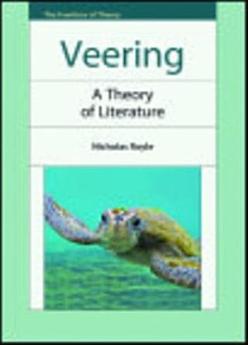Veering: A Theory of Literature
Oct 2011 · Edinburgh University Press
Ebook
232
Pages
family_home
Eligible
info
reportRatings and reviews aren’t verified Learn More
About this ebook
'Reading Veering generates the intense joy of veering. An exuberantly successful medium, Royle calls up swarms of passages from literature and elsewhere where the word or concept "e;veering"e; is salient. On this basis he creates new theories of literature and of creative writing's place in criticism. Royle's best book yet.'J. Hillis Miller, Distinguished Research Professor of Comparative Literature and English, University of California, Irvine'Nicholas Royle is one of the most interesting, inventive, and provocative thinkers of literary language currently writing in English, and he has done something truly extraordinary here. By allowing a theory of literature to emerge right from the traces of the veering movements of fiction and poetry, he has thoroughly renewed the possibility of thinking in the wake of our literary encounters. Veering issues a general license to read, once again, with all the wonder, generosity, and freedom it calls forth on every page.'Professor Peggy Kamuf, University of Southern California'Every genre, every great work has its way of veering. This fascinating, richly compendious, necessary book shows the way forward for literary studies. Nicholas Royle's twisty key opens and magically re-opens the wonders of the canon and beyond. The spiralling pleasure he takes in doing so lightens, refreshes, instructs and inspires. Royle is a wonderful communicator about literature and theory and a uniquely powerful, original critical voice. This is his most exciting and widely relevant work so far.'Sarah Wood, University of KentReflections on the figure of veering form the basis for a new theory of literatureExploring images of swerving, loss of control, digressing and deviating, Veering provides new critical perspectives on all major literary genres: the novel, poetry, drama, the short story and the essay, as well as creative writing Royle works with insights from Lewis Carroll, Freud, Adorno, Raymond Williams, Edward Said, Deleuze, Cixous and Derrida. With wit and irony he investigates veering in the writings of Jonson, Milton, Dryden, Wordsworth, Coleridge, Melville, Hardy, Proust, Lawrence, Bowen, J.H. Prynne and many others. Contrary to a widespread sense that literature has become increasingly irrelevant to our culture and everyday life, Royle brilliantly traces a strange but compelling literary turn
About the author
Nicholas Royle is Professor of English at the University of Sussex. He is the author of many acclaimed books, including Telepathy and Literature (1991), The Uncanny (2003), In Memory of Jacques Derrida (2009) and (with Andrew Bennett) the influential textbook, An Introduction to Literature, Criticism and Theory (4th edition, 2009). He also writes fiction and has recently published his first novel, Quilt (2010).
Rate this ebook
Tell us what you think.
Reading information
Smartphones and tablets
Install the Google Play Books app for Android and iPad/iPhone. It syncs automatically with your account and allows you to read online or offline wherever you are.
Laptops and computers
You can listen to audiobooks purchased on Google Play using your computer's web browser.
eReaders and other devices
To read on e-ink devices like Kobo eReaders, you'll need to download a file and transfer it to your device. Follow the detailed Help Center instructions to transfer the files to supported eReaders.






